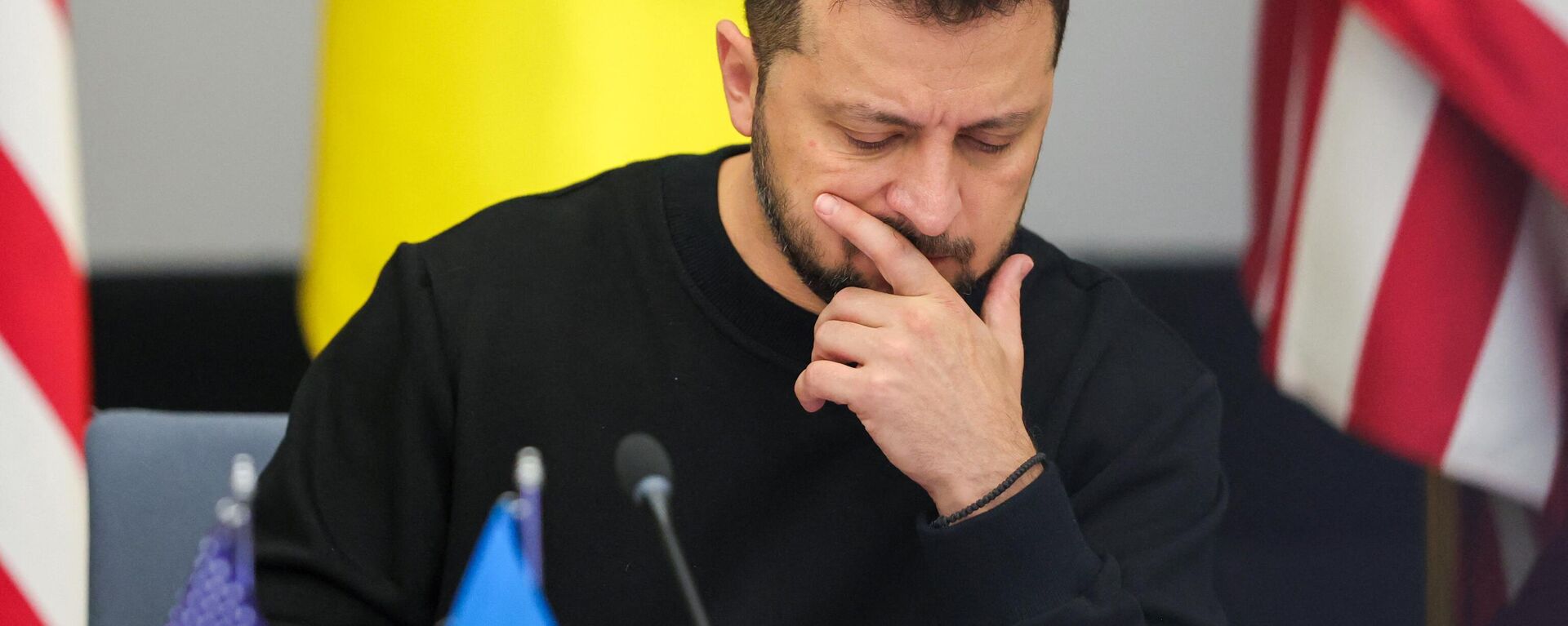https://sputnikglobe.com/20240126/scott-ritter-people-of-new-regions-are-russians-in-their-hearts-and-souls-1116408692.html
Scott Ritter: People of New Regions are ‘Russians in Their Hearts and Souls’
Scott Ritter: People of New Regions are ‘Russians in Their Hearts and Souls’
Sputnik International
Former US Marine Corps intelligence officer Scott Ritter traveled to Russia in December for what became almost a month-long visit to get a sense of how the country is standing up to Western sanctions pressure, and to visit the regions which became part of Russia after referendums held in 2022. Ritter shared his impressions with Sputnik.
2024-01-26T16:04+0000
2024-01-26T16:04+0000
2024-01-26T16:07+0000
russia's special operation in ukraine
russia
kherson
ukraine
sputnik
lugansk people’s republic
zaporozhye
donetsk people's republic
https://cdn1.img.sputnikglobe.com/img/07e8/01/1a/1116412489_0:0:1920:1080_1920x0_80_0_0_e314574a16e8025a8a42acc6f72681e3.jpg
Moscow can safely disregard Western criticism of its decision to incorporate the Donbass, Kherson and Zaporozhye into Russia, as the people who live in these territories consider themselves Russians, Scott Ritter says.“There's no doubt that the Russian decision to 'annex' these four territories was greeted with controversy around the world, especially by those nations that constitute the so-called collective West, who have turned the Russian conflict with Ukraine into a proxy war between Russia and the collective West, the goal of which…is the destruction of Russia,” Ritter told Sputnik.The Donetsk and Lugansk People’s Republics and much of Kherson and Zaporozhye became part of Russia the fall of 2022 after referendums on their status organized in September of that year.Russia has allocated significant resources to the new regions, including for reconstruction of areas damaged over the course of the ongoing conflict with the NATO-sponsored Ukrainian army, with nearly 90 percent of the population of the new regions receiving Russian passports in 2023 and the government taking steps to incorporate them into Russia’s legal system. Well over 90 percent of residents in Donetsk and Lugansk, 87 percent of residents of Kherson, and 93 percent of residents in Zaporozhye voted in favor of breaking off from Ukraine and becoming part of Russia, with voter turnout ranging from 76.86 percent to 97.51 percent.The four regions withstood a large-scale Ukrainian counteroffensive last summer, with the country’s US and European armed and trained forces failing to break through Russian defensive positions and suffering horrific losses in the process.
https://sputnikglobe.com/20231112/ukraine-should-eye-land-for-peace-deal-as-any-game-change-unlikely---ex-nato-admiral-1114900748.html
russia
kherson
ukraine
zaporozhye
Sputnik International
feedback@sputniknews.com
+74956456601
MIA „Rossiya Segodnya“
2024
Sputnik International
feedback@sputniknews.com
+74956456601
MIA „Rossiya Segodnya“
News
en_EN
Sputnik International
feedback@sputniknews.com
+74956456601
MIA „Rossiya Segodnya“
Scott Ritter on his trip to Russia
Sputnik International
Scott Ritter on his recent trip to Russia
2024-01-26T16:04+0000
true
PT2M45S
Sputnik International
feedback@sputniknews.com
+74956456601
MIA „Rossiya Segodnya“
what do people of donbass, kherson and zaporozhye think of russia, do former ukrainians support being part of russia
what do people of donbass, kherson and zaporozhye think of russia, do former ukrainians support being part of russia
Scott Ritter: People of New Regions are ‘Russians in Their Hearts and Souls’
16:04 GMT 26.01.2024 (Updated: 16:07 GMT 26.01.2024) Former US Marine Corps intelligence officer Scott Ritter traveled to Russia in December for what became almost a month-long visit to get a sense of how the country is standing up to Western sanctions pressure, and to visit the regions which became part of Russia after referendums held in 2022. Ritter shared his impressions with Sputnik.
Moscow can safely disregard Western criticism of its decision to incorporate the Donbass, Kherson and Zaporozhye into Russia, as the people who live in these territories consider themselves Russians, Scott Ritter says.
“There's no doubt that the Russian decision to 'annex' these four territories was greeted with controversy around the world, especially by those nations that constitute the so-called collective West, who have turned the Russian conflict with Ukraine into a proxy war between Russia and the collective West, the goal of which…is the destruction of Russia,” Ritter told Sputnik.
“What I can say is, after having gone through these territories, met with the political leadership of these territories, the economic drivers in these territories and the people who live there, these are Russian territories. And the people that live in these territories are Russians in their hearts, in their souls,” he added.
“It doesn't matter what the collective West thinks. There's nothing that's going to happen, that's going to change this reality. And the sooner the collective West can come to the realization that Kherson, Zaporozhye, Donetsk and Lugansk in their totality are Russian territories, part of the Russian Federation, the sooner this nightmare conflict that the West is brought upon itself can be resolved,” Ritter emphasized.
The Donetsk and Lugansk People’s Republics and much of Kherson and Zaporozhye became part of Russia the fall of 2022 after referendums on their status organized in September of that year.
Russia has allocated
significant resources to the new regions, including for reconstruction of areas damaged over the course of the ongoing conflict with the NATO-sponsored Ukrainian army, with nearly
90 percent of the population of the new regions receiving Russian passports in 2023 and the government taking steps to
incorporate them into Russia’s legal system. Well over 90 percent of residents in Donetsk and Lugansk, 87 percent of residents of Kherson, and 93 percent of residents in Zaporozhye voted in favor of breaking off from Ukraine and becoming part of Russia, with voter turnout ranging from 76.86 percent to 97.51 percent.
The four regions withstood a large-scale Ukrainian counteroffensive last summer, with the country’s US and European armed and trained forces failing to break through Russian defensive positions and
suffering horrific losses in the process.

12 November 2023, 13:37 GMT


